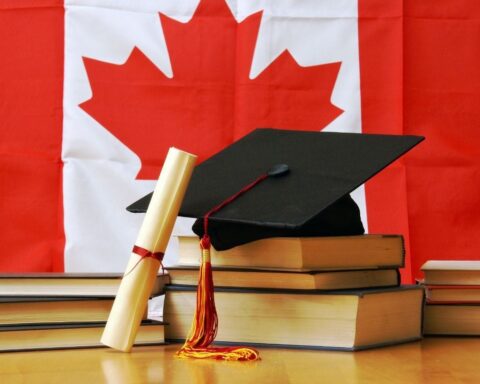The best person to explain the big new-year changes to the federal cabinet’s makeup might well be someone who doesn’t even live here: outgoing U.S. Vice-President Joe Biden.
During a visit to Canada a month ago, Biden told Prime Minister Justin Trudeau that Canada needs to step up, internationally — comments that were widely interpreted as a gesture of passing the liberal torch from soon-to-be ex-president Barack Obama.
“The world is going to spend a lot of time looking to you, Mr. Prime Minister. Vive le Canada, because we need you very, very badly,” Biden said in remarks at a dinner during his visit to Ottawa.
While we don’t know how much the world was watching events at Rideau Hall on Tuesday, it is abundantly clear that Trudeau has set his sights on the world. As he told reporters after the shuffle, he needs to take into account a “shift in global context.”
In fact, it’s difficult to remember a Canadian cabinet shuffle so internationally focused — one that set so many parts in motion outside Canada’s borders, especially during a time of tumultuous, global change. Among the changes we learned about Tuesday:
- A new minister to handle the looming challenges to Canada posed by Donald Trump’s incoming administration — Chrystia Freeland, now Global Affairs minister.
- A new ambassador to China — former immigration minister John McCallum. This isn’t about a minister being put out to pasture: McCallum is being asked to represent Canada in a nation of immense interest to the current government. Faced with trade threats from a U.S. president vowing to make America great again (possibly at other countries’ expense,) Canada has been seeking to expand trade with China.
- A new minister of international trade, François-Philippe Champagne.
- A new minister of immigration, refugees and citizenship: Ahmed Hussen.
The departing Global Affairs minister, Stéphane Dion, was rumoured to be considering a diplomatic post, possibly in Europe, but at the time of Tuesday’s press conference the former Liberal leader was saying only that he was leaving active politics and considering his next move. My best bet is that this is a difficult conversation still in progress (which probably accounted for the unusual uncertainty about the timing of the shuffle ceremony itself at Rideau Hall).
The speculation about Europe as a landing spot for Dion, however, underlines just how much Trudeau and his team are thinking about what’s going on in the world these days. The Brexit vote to leave the European Union, the refugee crisis, ongoing terrorism threats and the rise of right-wing parties are all large matters of concern to progressive-minded governments.
As Biden said in his Ottawa speech: “I’ve never seen Europe as engaged in as much self-doubt as they are now.”
All prime ministers, sooner or later, become preoccupied with global affairs and their place on the big stage. It’s usually an interest that deepens with tenure, and their increasing confidence in rubbing shoulders with other world leaders.
With a comfortable majority, Trudeau doesn’t need to be worried about his government falling on a vote in the Commons while he’s abroad, as Stephen Harper was during his first two minority governments.
Trudeau, however, seemed to arrive in office with an intense interest in international affairs; he gave some of his first interviews to foreign media and has spent a lot of time commuting to the United States and other summits around the world. His critics have portrayed this as a lack of interest in his own country, accusing Trudeau of being too busy to even attend question period and thinking himself too important to spend his vacations in Canada.
Granted, it is a luxury Trudeau can afford. With a comfortable majority, Trudeau doesn’t need to be worried about his government falling on a vote in the Commons while he’s abroad, as Stephen Harper was during his first two minority governments.
Not all of this shuffle was outward-looking. Shuffles can be very useful in maintaining government discipline — dangling a few promotions as examples to other ambitious, cabinet wannabes in the backbench, and doling out demotions as a warning to others performing under-par. To borrow from that old Liberal campaign slogan from 2015, shuffles are all about hope and hard work — dispensing it (hope) or enforcing it (hard work).
On that score, this shuffle did deliver. While Trudeau’s office was putting out nice words about Dion and his contribution to the government in a press release, nobody watching the PM’s press conference had any doubts that the PMO had decided the former professor and Liberal leader wasn’t the right man to handle what’s coming with Trump and other big events on the world stage.
Other casualties: Maryam Monsef, now the Status of Women minister, was punted from the Democratic Reform post to which she was proving herself unsuited (to say the least). MaryAnn Mihychuk was ejected altogether from her job as minister of Employment, Workforce Development and Labour.
Trudeau wasn’t doing this shuffle with home-grown concerns at front of mind, or even his prospects for the next election. The election that seems to be front of mind for Trudeau right now is the recent one in the United States.
Big promotions were handed out to Patty Hadju, moving from Status of Women to Mihychuk’s old job, and to new ministers Champagne and Hussen. Other MPs will be wondering what they did right — which is exactly what the PMO wants them to be thinking about.
Note, though, that the domestic posts in this week’s shuffle were almost afterthoughts. Trudeau wasn’t doing this shuffle with home-grown concerns at front of mind, or even his prospects for the next election (those changes will come closer to 2019, we can assume).
The election that seems to be front of mind for Trudeau right now is the recent one in the United States — the one that gave Canada, and now Freeland, a President Trump to deal with. And if we’re looking for deeper read of the shuffle’s international focus, Biden’s remarks to the PM may be as good any.
“The progress is going to be made,” Biden said, “but it’s going to take men like you, Mr. Prime Minister, who understand it has to fit within the context of a liberal economic order, a liberal international order, where there’s basic rules of the road.”
Don’t be surprised if words along these lines are in the mandate letters for many of the new ministers.
The views, opinions and positions expressed by all iPolitics columnists and contributors are the author’s alone. They do not inherently or expressly reflect the views, opinions and/or positions of iPolitics.
Republished in partnership with iPolitics.ca





